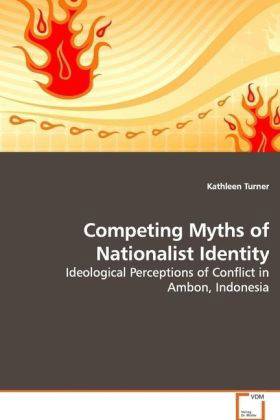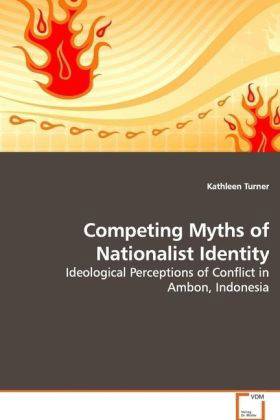
- Afhalen na 1 uur in een winkel met voorraad
- Gratis thuislevering in België vanaf € 30
- Ruim aanbod met 7 miljoen producten
- Afhalen na 1 uur in een winkel met voorraad
- Gratis thuislevering in België vanaf € 30
- Ruim aanbod met 7 miljoen producten
Zoeken
Competing Myths of Nationalist Identity
Ideological Perceptions of Conflict in Ambon, Indonesia
Kathleen Turner
Paperback | Engels
€ 77,95
+ 155 punten
Omschrijving
The development of an Ambonese nationalist movement
from a non-territorial communal riot offers
an important insight into understanding the changes
in ethnic and national consciousness that had taken
place among the Ambonese since the eruption of
violence in January 1999. The 1999 conflict in
Ambon, Eastern Indonesia began as a communal riot in
which members of one group suddenly instigated a
violent attack on civilian members of another group.
However the development of the Moluccan Sovereignty
Front and the Java-based Laskar Jihad represented an
important phase in conflict development as each
nationalist construction played off each other. The
conflict on the island became characterised by this
trend where two conflicting ideological
constructions translated the conflict into a non-
negotiable confrontion between opposing national
rights. These constructions remained internalised on
the island and embedded within the mindsets of both
Ambonese Christians and Muslims thereby rendering
setbacks to conflict resolution.
from a non-territorial communal riot offers
an important insight into understanding the changes
in ethnic and national consciousness that had taken
place among the Ambonese since the eruption of
violence in January 1999. The 1999 conflict in
Ambon, Eastern Indonesia began as a communal riot in
which members of one group suddenly instigated a
violent attack on civilian members of another group.
However the development of the Moluccan Sovereignty
Front and the Java-based Laskar Jihad represented an
important phase in conflict development as each
nationalist construction played off each other. The
conflict on the island became characterised by this
trend where two conflicting ideological
constructions translated the conflict into a non-
negotiable confrontion between opposing national
rights. These constructions remained internalised on
the island and embedded within the mindsets of both
Ambonese Christians and Muslims thereby rendering
setbacks to conflict resolution.
Specificaties
Betrokkenen
- Auteur(s):
- Uitgeverij:
Inhoud
- Aantal bladzijden:
- 280
- Taal:
- Engels
Eigenschappen
- Productcode (EAN):
- 9783639028669
- Uitvoering:
- Paperback
- Afmetingen:
- 150 mm x 16 mm
- Gewicht:
- 389 g

Alleen bij Standaard Boekhandel
+ 155 punten op je klantenkaart van Standaard Boekhandel
Beoordelingen
We publiceren alleen reviews die voldoen aan de voorwaarden voor reviews. Bekijk onze voorwaarden voor reviews.











